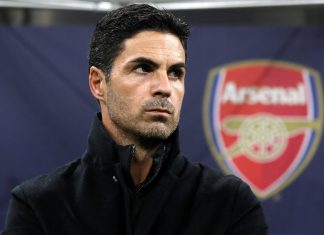Increasingly unpopular, that is, if you are outside of the organisation’s Zurich base. If you are part of the FIFA hierarchy, Blatter seems to be as popular as he ever has been. To the outsider this is a curious state of affairs. How can such a seemingly dislikeable individual hold such extraordinary power over the world game? In the game of politics, votes are the currency, and Blatter has controlled the FIFA presidency with relative comfort since his initial election in 1998.
To understand how Blatter has come to hold this power, it is first necessary to place his reign in context. Joao Havelange, who was accused of buying the FIFA Presidency in 1974 by promising benefits to African and Asian voters. Prior to Havelange though, the FIFA President was Stanley Rous, an Englishman with a history just as, if not more controversial, than those of Havelange or Blatter. Rous controversially recommended that South Africa be readmitted into the football community in 1963 in spite of apartheid, and ran a European centric organisation who ignored the other confederations.
It was this that unleashed the force of Havelange and Blatter, who have both sought to actively spread football around the world at the expense of the traditional European powers, the direct opposite of the policies of the Rous administration. So FIFA can be seen in its historical context, with Africa and Asia in particular sidelined by football under the presidency of an Englishman.
But Blatter’s presidency has been facilitated by the dark and the unseemly world of politics, with alleged bribes and inducements used to convince people to vote for him. Not coincidentally, a private jet was lent to him by Mohammed bin Hammam, the Qatari member of FIFA’s ExCo during his run for the 1998 presidency against the Swede and UEFA President of the time, Lennart Johannson. Joao Havelange campaigned on his behalf, including a trip to Downing Street where England was promised the 2006 World Cup in exchange for voting for Blatter.
There were also claims that Blatter bribed delegates, such as Farah Addo, the Somalian vice-president of the African Confederation, who said “They offered me $100,000 to switch my vote from Johansson to Blatter. Half in cash and half in football equipment. I said ‘No’, they said ‘OK, but we want you to influence the others’.
There were accusations that delegates received cash in envelopes prior to the vote for the 1998 presidency, which FIFA officially acknowledged, though claiming these were regular payments. Voters swayed towards Blatter from Johannson, having been offered inducements and through influence, such as the French efforts to convince delegates from its former colonies to vote for Blatter. The election was also undertaken using a secret ballot, despite Johansson and his supporters’ calls for an open election. England was as guilty as anyone else, voting for Blatter despite promising Johannson their vote due to the promise of the 2006 World Cup. Johannson said:
“People I talked to told me they would vote for me and then a lot of them didn’t.”
Certainly this sheds some light on England’s failure to attract support within FIFA, now that they are accusing members of the ExCo of skullduggery similar to that it has pulled in the past. But Blatter’s hold on power has been as the result of offering inducements and bribes, such as his switching of support for England’s 2006 World Cup bid a week after his election, then saying that it should go to Africa. Once Africa eventually had the World Cup thrust on them in 2010 as Blatter engineered the rotation policy that eventually forced this upon the world, Brazil received the 2014 World Cup, much to the delight of Blatter’s close friend and predecesser Havelange, who had long wanted to return the World Cup to his country.
With Blatter’s insistence on a rotation policy and the idea of taking the World Cup to new lands, there is a convincing and genuine narrative for a sordid and underhand control of FIFA’s presidency. There are of course, more countries with delegates on the ExCo who have never hosted a World Cup than those who have. When delegates from the smaller nations who make up the crucial votes in the Committee can see the competition hosted by the likes of South Africa, Brazil, Russia and Qatar, there is clear proof to them that if they tow the line, they too can one day host a World Cup. It sounds compassionate, reasonable and fair – on the face of it – but this is how Blatter is able to control FIFA and retain a hold on power. The ultimate bribe of all – the promise to take the World Cup to ‘new lands.’ Most of course, are ‘new’ lands. Such as the country that did so much to help Blatter win election in 1998 through convincing so many African delegates to vote for the Swiss. Qatar.




